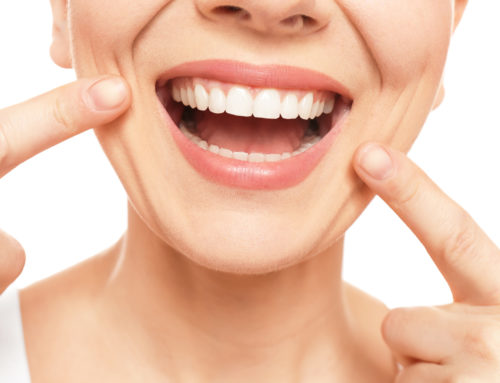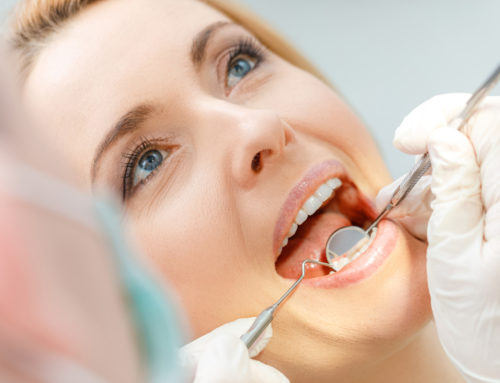You bite into your favorite ice cream and you met with pain. You take a sip of your morning coffee and again, you feel pain. Your teeth have never been too sensitive so what gives?
Feeling pain due to extreme food temperatures is a common sign that you may have a cavity. Go to a mirror and open your mouth. If you have any little holes in your teeth or they are discolored in any way then this is almost confirmation that this is the case.
If you don’t then that doesn’t mean that you’re in the clear. Check out these common signs that you may have a developing cavity so you can get it handled.
1. You’ve Got a Toothache that Won’t Go Away
With a developing cavity comes pain when you bite down. The source of this pain could come from your gums or the damaged tooth in general. Sometimes the discomfort will be a sharp pain or it could be more of a throbbing one.
You could be experiencing it because of a sinus infection, but if your health is fine and the toothache is persistent then you may want to visit the dentist to get a second opinion.
2. Chewing Food Hurts
Food is amazing but not so amazing when you can’t bite into your favorite ones without feeling a searing pain. If you’re chewing on a crisp apple and feel irritation, this is a sign that your tooth is either cracked or is in the process of decay.
You can judge how bad the damage to the nerve is by touching the problem tooth. If you find yourself flinching due to pain then you may need to make a dental appointment.
3. Bad Breath/Bad Taste in Your Mouth
If you’ve had a cavity at some point before you know that they are tiny holes in your teeth that manage to get infected. Bacteria and food will fester in the damaged tooth.
This will cause bad breath no matter how much gum you chew to get rid of it. It can also leave a horrible taste in your mouth that won’t seem to go away.
4. Sensitivity to Temperature
While any food can cause you pain if you have a cavity developing, the tooth will be even more sensitive to food that is cold or hot. You may also feel pain if you eat food that is sticky or sweet.
Tooth sensitivity isn’t an automatic diagnosis for a cavity though. Before you decide on the worst-case scenario, switch up to a toothpaste that is made to combat tooth sensitivity. If doing this doesn’t solve the issue after a while, then is the time to call a dentist to get checked out.
5. Visible Holes
The most obvious sign that you’re dealing with a cavity is if you can see visible holes when you open your mouth. See, cavities are formed when bacteria is able to build up in your mouth. This bacteria creates plaque.
Plaque is pretty normal unless it’s allowed to sit in your mouth for days at a time. If it stays for too long it will harden up and turn into tartar. Tarter and bacteria will work together to eat through your tooth which is what creates the holes.
If the situation gets this bad then you’ll need to make an appointment with your dentist to have the holes filled up.
6. Dark Spots and Discoloration
Cavities don’t always show themselves in the form of holes. Sometimes you’ll see some dark spots and discoloration on the tooth. Granted, these spots could also be the results of regular stains.
The only way to be sure is to touch it. If the tooth in question is soft and sticky then it’s not a stain. It’s a developing cavity.
If you leave it unchecked the entire tooth could become discolored. When this happens then there is a higher chance that it may crack and break.
7. You Bleed When You Brush
When your tooth starts to decay, the nerve itself gets infected. This infected nerve can cause bleeding when you brush your teeth. The bleeding can be the sign of a cavity or gum disease.
It could be a mixture of both too. If you have a deep cavity that’s close to your gum line food can get stuck in it and cause problems. So, if you notice blood when you brush, talk to your dentist so they can figure out what’s going on before the situation gets too dire.
8. Gum Swelling
If your cavity is deep then it can cause the nerve there to die which will result in infection and swelling. You may not think of it being too much of a problem though because this issue doesn’t always result in pain.
Swelling isn’t something that you should ignore though. Contact your dentist so you can find out if this issue is a cavity or gum infection.
9. Pain from Pressure Changes
When the air pressure changes it can irritate the nerve inside your infected tooth. So if you experience throbbing tooth pain when you go scuba diving or hop on a plane, you may have a cavity.
If you’re experiencing this symptom you may want to make a dentist appointment when you get back from your trip.
10. Cracked Tooth
The bacteria that cause cavities to form will weaken the enamel of your tooth. This will make your tooth vulnerable when you’re eating hard or chewy foods. Don’t be surprised if it cracks when you bite down.
If this happens you want to immediately stop chewing on that side of your mouth until you can get treatment for it.
Signs that You May Have a Cavity on Your Hands
That pain you’re experiencing when you bite into your favorite food may not be a simple case of tooth sensitivity. You could have a cavity.
Use this guide to look for the signs so you can know for sure and get it fixed. Start enjoying your meals again.
Need to get treatment for your cavity? Contact us to make an appointment today.





